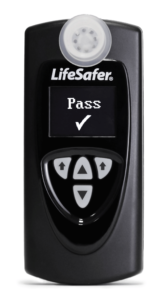In the State of Michigan, first-time offenders of the State’s drunk and/or drugged driving laws must install an ignition interlock device (IID) if found to have a blood alcohol concentration (BAC) of .17 percent or higher. Repeat offenders are also required to use an IID for BAC of .17 percent or higher, as well as if their second offense occurs within seven (7) years of the first or their third offense occurs within ten (10) years of the previous ones. If ordered to use one, an IID must be installed on all vehicles owned and operated by the offender and the individual is responsible for any costs related to the device. IID vendors decide their own costs with no oversight from the State of Michigan; however, low-income residents are limited to paying a maximum of $2.00 per day.
If an offender is ordered to use an IID and is found driving without one or without the IID properly installed, the individual will be arrested and the vehicle will be impounded. If the driver owns or co-owns the vehicle, the metal license plates on the vehicle will also be destroyed. When convicted of operating a vehicle with a poorly installed IID, the offender will get another 1-year license suspension. The offender will only be able to obtain another restricted license forty-five (45) days after the beginning of suspension, provided all vehicles are equipped with properly-installed IIDs within that time frame. Repeat offenders will have the license plates of the vehicle being driven to be destroyed at the time of an arrest regardless of who owns the vehicle.
IID violations result in IID use extensions or immediate reinstatement of license revocation/denial. IID violations include:
- 3 start-up test failures within a monitoring period
- Failure to service the device within seven (7) days of scheduled maintenance date
- Rolling re-test violations
- Tampering or circumventing the IID
- An improperly installed or missing IID
- Arrest or conviction for drunk and/or drugged driving

